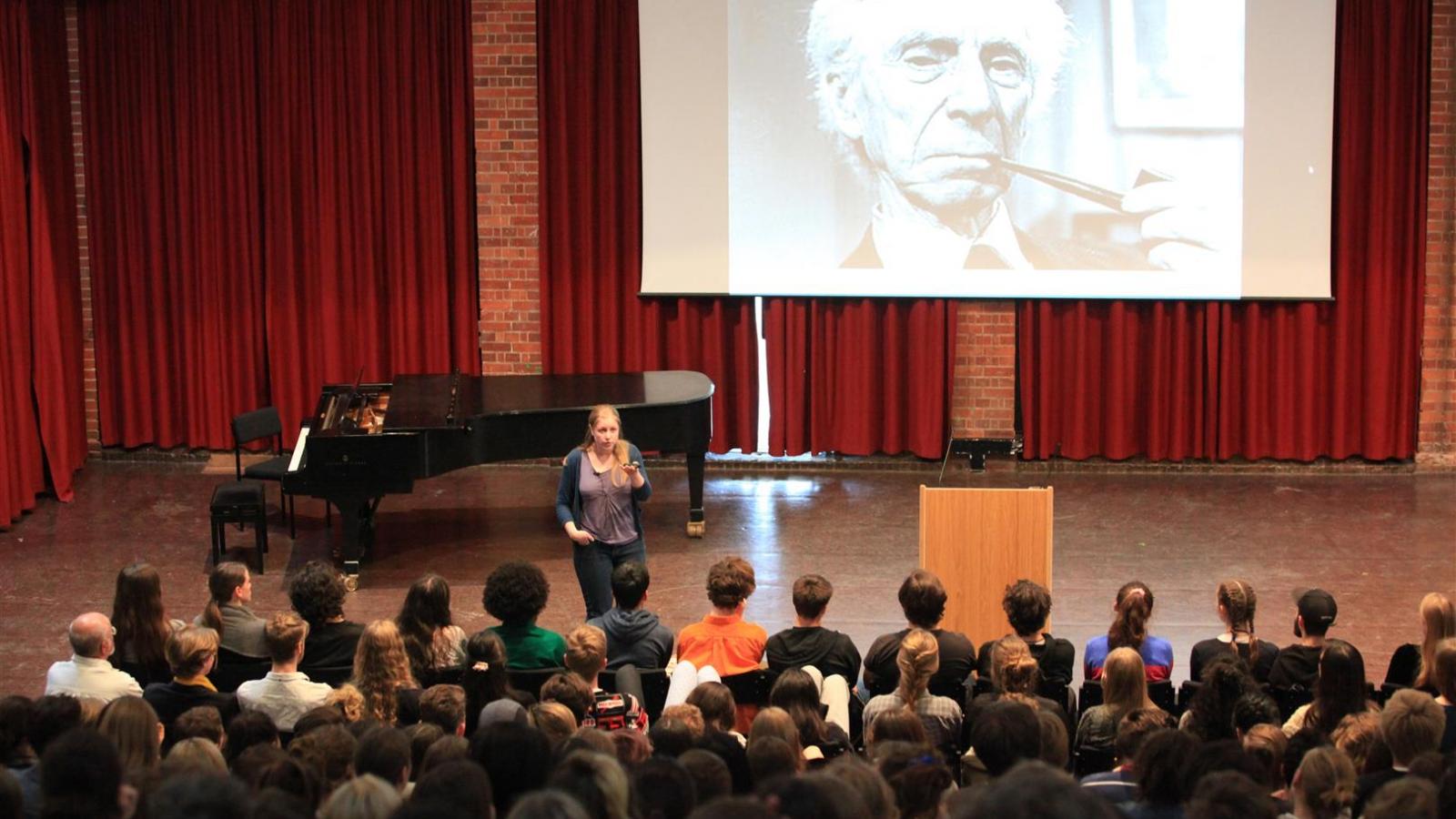By Clare Jarmy
Jaw doesn’t happen at other schools. Alongside Outdoor Work, a Brekkie, BACs, the Blocks and many many other things, Jaw is a bit of Bedales lingo that doesn’t really translate in the world outside.
Jaw at Bedales takes the place of chapel in more traditional independent schools. It is the time during the week for reflecting on philosophical, spiritual, religious and moral ideas and views, and can cover such wide-ranging talks as “Why you don’t really have a head” (a memorable talk about our self-perception) to a Zen Buddhist illustrating what consciousness is like, using an enormous beaker of water and some sand, to an act of remembrance to those from the school who died in the two world wars. Jaw reflects the diversity of views not just in the school, but in the world as a whole, and speakers from many different philosophical and religious perspectives are invited to participate.
Jaw began its life as prayers and happened on Sunday evenings. John Badley described Bedales as a Christian school, despite its non-denominational stance and lack of chapel, and so Sunday prayers were part and parcel of boarding school life, just as chapel would be in other schools. Badley never liked the idea of services as such, or “worship”, so there were set prayers and readings, followed often by a talk from which the students could glean a new idea, a moral perspective, or a new insight into the way the world is. Many people are surprised to hear that Bedales has both prayer books and hymn books, both of which were regularly used.
Interestingly, those early Jaws were not known by that name, but simply as prayers. Jaw always seems like a strange name, and those of us who are old enough, or well-enough acquainted with early 20th century slang will know that “jaw-jaw” translates roughly into “going off on one” or “having a rant” in modern-day parlance. Winston Churchill famously said “To jaw-jaw is always better than to war-war” and Bedalians often felt prayers on a Sunday night were an ideal time for speakers to have a 'jaw-jaw' instead. Sunday night prayers became known colloquially and, as happens with language over time, formally as Jaw, the name we use to this day. Copies of Jaws given by Badley and others are available in the library.
Over the years, Jaw has become broader than it once was, with visiting speakers and a variety of perspectives being central to the programme. However, Jaw also broadly follows the Church year, marking festivals such as Harvest, Advent, Christmas and Passiontide. Although we may not have a chapel, when it comes to Christmas, Bedalian carol singing can rival the best of them.
Watch a recent Jaw, featuring a debate about the EU Referendum in June 2016:

